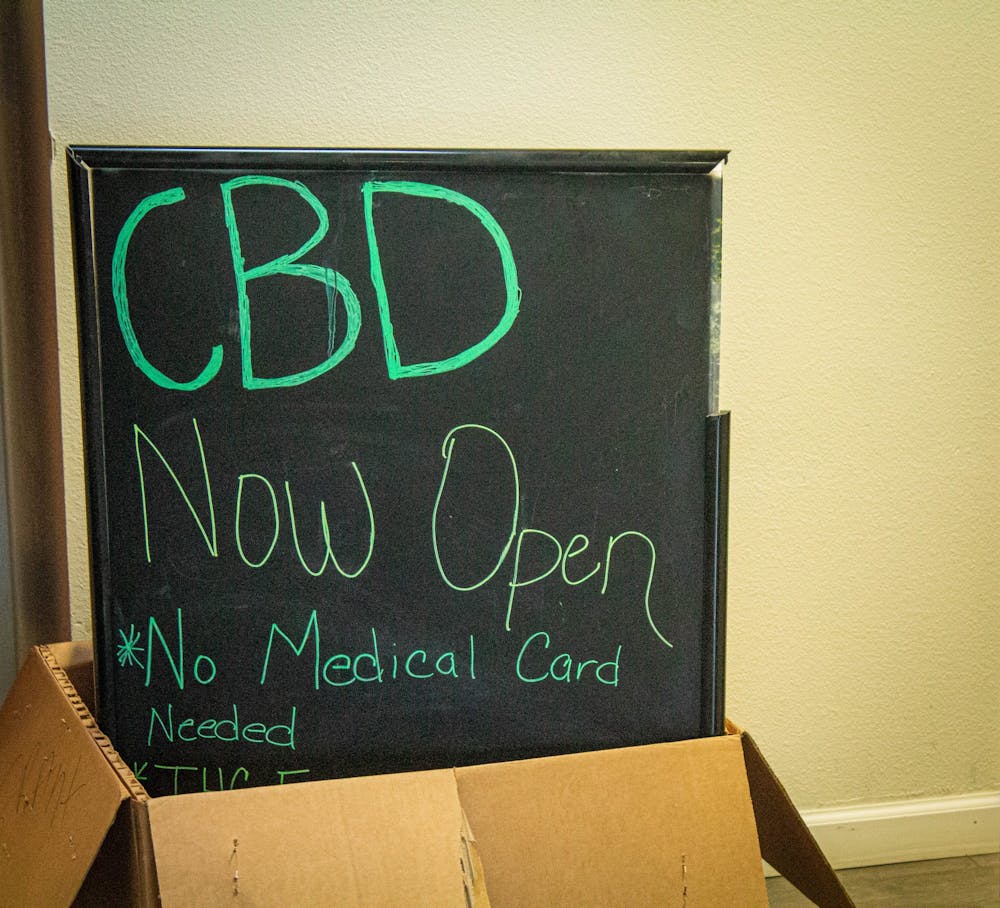New Mexico is one of the most recent states to legalize cannabis recreationally, jumping on the bandwagon as the 17th state to legalize out of 18 so far. This recent move stems from decades-old political movements and increased acceptance of the drug on a local and national level.
“I think over time, the science has evolved in a way and our attitudes have evolved in a way that have created political openings for legalizing marijuana at the state level … Legalization of marijuana has become a fairly popular thing,” said Timothy Krebs, University of New Mexico professor and department chair of political science.
Medical cannabis was legalized in 2007 in New Mexico and then recreationally last summer with large help dating all the way back to Gov. Gary Johnson’s term from the late ’90s to early 2000s, according to Krebs. The move to legalize also came from seeing others doing it in addition social and tax benefits, according to Mathew Muñoz, chief innovation and finance officer of Carver Family Farm who has also worked for UNM’s governmental relations as well as state relations.
Muñoz noted the boost in employment and revenue that the cannabis industry will introduce to New Mexico. Krebs also brought up the high revenue potential and the fairly high 12% tax rate as driving factors in statewide legalization.
A lot of the potential political issues relating to cannabis fall back on a city or county level, according to Krebs. These may include people driving while impaired, agriculture, medicinal versus recreational resources or sales, and zoning.
More conservative parts of New Mexico, like the southeastern regions, may be less excited about this change, according to Krebs. He also said if legalization ever happens in more conservative southern states, like Texas, it might push other conservative states to follow suit.
However, cannabis is still illegal on a federal level, which Krebs thinks will change one day. The start to legalization on a federal level will happen first on a medical basis, according to Krebs. So far, 37 states and Washington, D.C. have legalized medical cannabis.
“I do believe it’s going to become so widespread at the state level that it will bubble up to the national level,” Krebs said.
Because cannabis is federally illegal, a lot of large banks won’t accept “cannabis cash,” according to Muñoz, though he said there are banks in New Mexico willing to accept it. This federal cash issue is what Muñoz believes will drive change at the federal level.
“There’s a lot of states where it is legal (but) they don’t have a cannabis bank, which makes things like paying your payroll difficult. I mean, it’s hard. You’re running a cash business and you don’t have a bank account to actually write a check to an employee. You have to pay everybody in cash,” Muñoz said.
The U.S. House of Representatives passed legislation on Friday, April 1 to decriminalize cannabis at a federal level, which both Krebs and Muñoz brought up. However, both said it would be difficult to pass through the more historically conservative Senate.
Cannabis is labeled as a Schedule I substance under the Controlled Substances Act, “meaning that it has a high potential for abuse, no currently accepted medical use in treatment in the United States and a lack of accepted safety for use under medical supervision,” according to a cannabis fact sheet from the Drug Enforcement Administration.
Get content from The Daily Lobo delivered to your inbox
“You’ve got this sort of, at the federal level, this law (that) basically says this is a serious drug. Marijuana’s illegal; it’s a serious drug,” Krebs said.
In general, more liberal and younger individuals are more supportive of cannabis legalization than older conservatives, according to Krebs. He brought up that more conservative people may also see cannabis as a gateway drug, and Republicans in general are “less permissive in their attitudes about this.” Muñoz brought up that younger Republicans are generally more supportive than older individuals in their party.
“I think it’s just the old conservative Republicans that still have control of the party that aren’t in favor of it, and it gets back to the Reagan war on drugs … I think a lot of them are starting to see the dollar signs in these states that have legalized. I mean, cannabis was a $25 billion industry in the past year worldwide and that’s only going to grow. At some point, the conservative side will see the fiscal sides and it will come together, but it’s just not at that point yet,” Muñoz said.
As of Sunday, April 3, more than $4.5 million in sales had been made in the state since recreational sales started on Friday, April 1.
“It’s kind of a moment of celebration and culmination of a lot of hard work on the part of legislators and advocacy groups to really produce a major change in policy,” Krebs said.
Megan Gleason is the Editor-in-Chief of the Daily Lobo. She can be contacted at editorinchief@dailylobo.com or on Twitter @fabflutist2716






